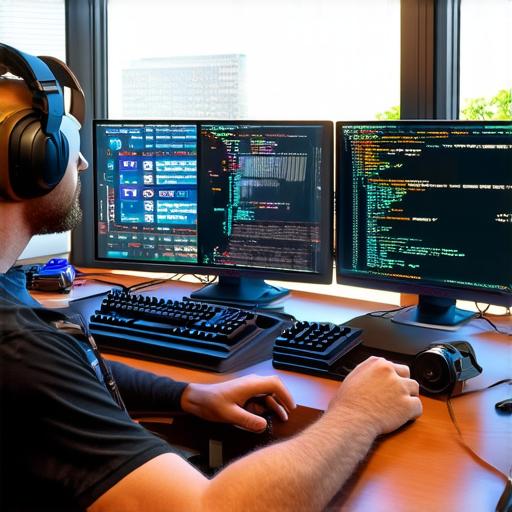Are you passionate about video games and want to create your own? Are you interested in learning more about what tasks are involved in video game development? If so, then this article is for you! In this article, we’ll explore the many tasks that a video game developer undertakes. From conceptualization to programming, we’ll take a closer look at what it takes to create a successful video game.
The Conceptualization Process
The first step in creating a video game is the conceptualization process. This involves brainstorming ideas for the game and coming up with a clear vision of what the game should be. The team comes together to discuss the game’s setting, characters, storyline, and gameplay mechanics. They also consider the target audience and what type of game will appeal to them.
During this phase, the team creates a detailed game design document (GDD). This document outlines the game’s goals, mechanics, characters, levels, and overall narrative. It serves as a blueprint for the entire development process and is used by everyone involved in creating the game.
Prototyping and Concept Art
Once the conceptualization process is complete, the team moves on to prototyping and concept art. Prototyping involves creating a basic version of the game, which allows the team to test the mechanics and see how the game plays in practice. This stage helps identify any problems or issues that need to be addressed before moving forward.
Concept art, on the other hand, involves creating visual representations of the game’s characters, environments, and other elements. The art team creates concept art to help the development team better understand what the final product will look like and provide inspiration for future stages of development.
Programming and Development
With the prototyping and concept art completed, it’s time for programming and development. This stage involves writing code and implementing the game mechanics that were designed in the earlier stages. The programming team is responsible for creating the game’s logic, user interface, and other technical aspects.
During this phase, the development process becomes more structured as the game moves from a rough concept to a fully functional product. The team follows an agile development methodology, which involves breaking down the project into smaller tasks and completing them in short sprints. This approach helps ensure that the team stays on track and meets its deadlines.
Testing and Quality Assurance
Once the programming and development process is complete, the game moves into testing and quality assurance. The testing phase involves finding and fixing any bugs or issues in the game. The quality assurance team conducts extensive testing to ensure that the game meets the standards set out in the GDD and provides a seamless user experience.
During this stage, the team also collects feedback from beta testers and makes changes based on their suggestions. This ensures that the final product is polished and ready for release.
Marketing and Promotion
The final stage in creating a successful video game is marketing and promotion. The marketing team creates a campaign to generate buzz around the game, including social media ads, trailers, and other promotional materials. They also work with influencers and other brands to increase the game’s visibility.
Launch Day

Finally, launch day arrives. This is the moment that all the hard work pays off, and the game is released to the public. The team monitors the game’s performance closely, making adjustments as needed to ensure its success.
FAQs
What skills are needed to be a video game developer? Video game developers need strong programming skills, creativity, and attention to detail. They also need to have experience with game engines like Unity or Unreal Engine.
How long does it take to create a video game? The development process for a video game can vary depending on the complexity of the game and the team’s size. On average, it can take anywhere from a few months to several years to create a game.
What is the role of a game designer in video game development? A game designer is responsible for creating the game’s overall vision and direction. They work closely with other members of the team to design the game’s mechanics, characters, levels, and narrative.
